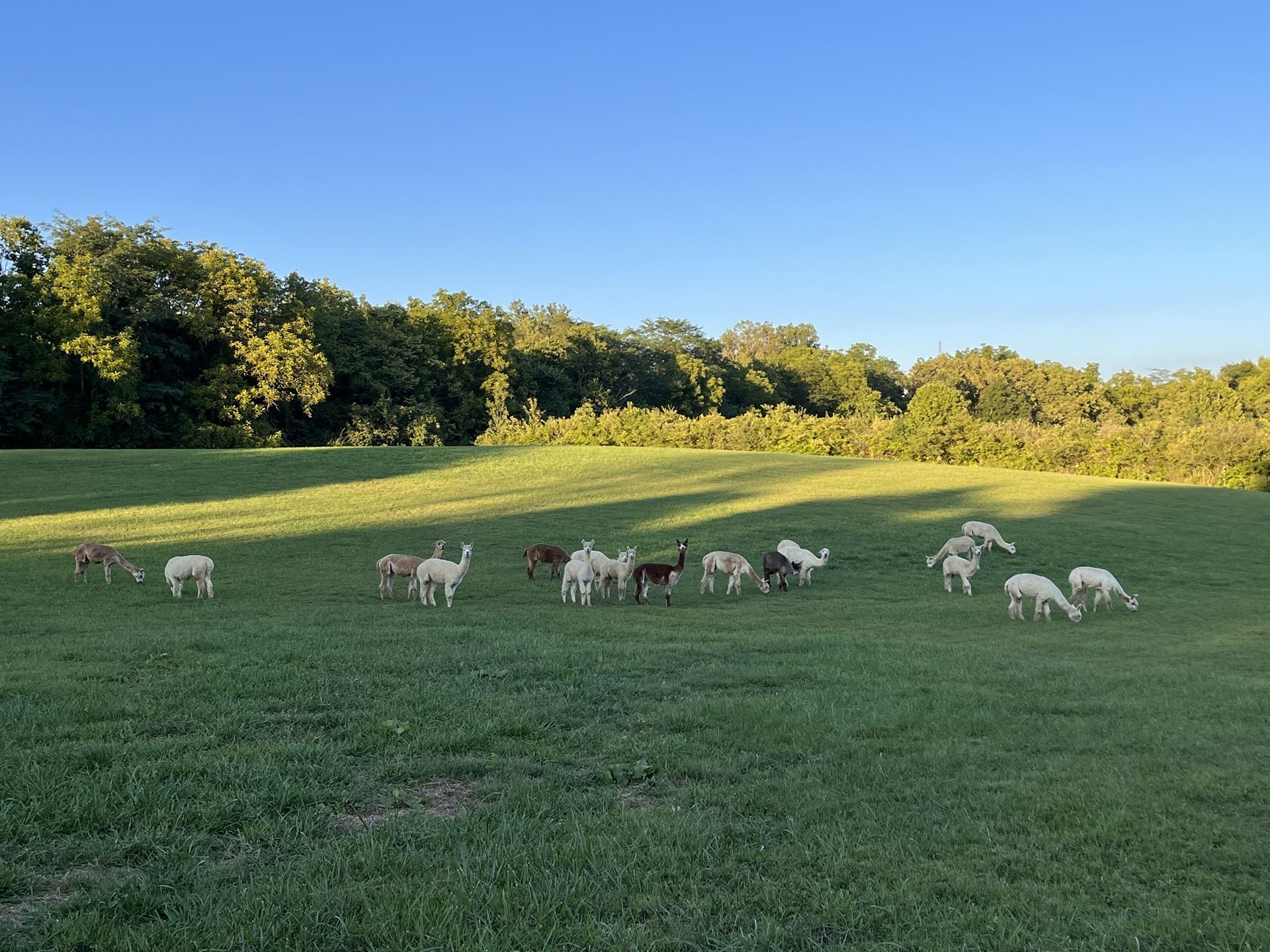SUSTAINABLE SURI Sustainablity is certainly a buzzword these days and we are all trying to be more conscious of how we impact our world and be kinder to the environment. There is no other fiber producing livestock more sustainable than the Suri alpaca. Gentle on Pasture: Suri alpacas have an unusual foot. Instead of having a hoof like sheep and goats, they have two toes with toe nails on the top. The bottom of their foot is a fleshy pad similar to the human heel. As they move about the pasture, their feet are less likely to tear up the soil and the grass or legumes so that the plants can remain intact and continue to grow. Composted alpaca manure reduces the need for synthetic fertilizer. It is a natural source of nitrogen, phosphorus, and potassium, and also adds beneficial micronutrients that nurtures beneficial organisms in the soil that are not present in synthetic petroleum derived fertilizers. |
|
Efficient Digestive System:
Alpacas only consume about 1.5 percent of their body weight, and combined with their ruminant digestive system, they produce only 56% of the methane gas that similar fiber growing animals such as sheep produce.
One of the most amazing, but unseen thing about alpacas (as well as other ruminants) is their digestive system. Suri alpacas graze on pasture consuming grass and other plants. Their complex digestive systems break down those plants into tiny particles that are then digested by bacteria and fungi in their stomach. The organisms in their gut actually digest what they eat and turn the plants into components for energy and growth. But where does the protein that we all need to grow cells, nerves, organs, muscles, skin and fleece come from? Well after breaking down all that plant material into energy, it is passed onto the last part of the stomach along with the bacteria and fungi. The third stomach digests the the bacteria and fungi which provides the alpaca with the protein it needs. It is an incredibly efficient system that takes grass and turns it into beautiful fiber for us to make into simply stunning items.
